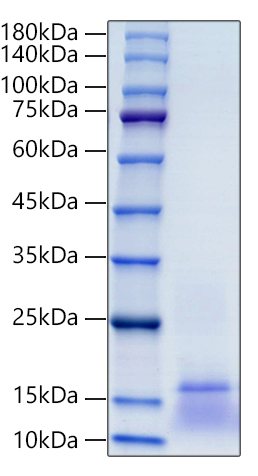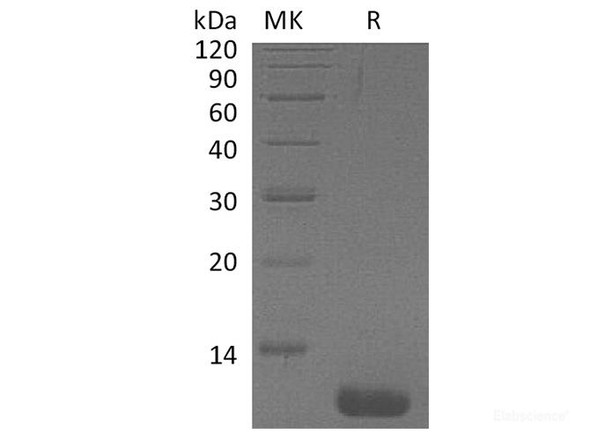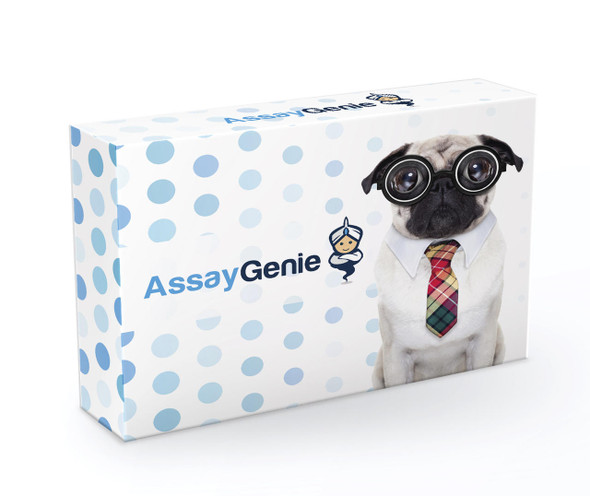Description
Recombinant Human CCL1/I-309 Protein
The Recombinant Human CCL1/I-309 Protein is a biologically active recombinant protein that plays a significant role in various cellular processes and signaling pathways in human biology. This protein is widely employed in immunological research, cell biology studies, protein-protein interaction analyses, and therapeutic development, providing researchers with a reliable tool for investigating CCL1/I-309 function and its implications in health and disease.
This product (SKU: RPCB1021) is produced using Pichia and features a No tag tag for convenient detection and purification. The protein exhibits a calculated molecular weight of 8.49 kDa with an observed molecular weight of 10-18 kDa under denaturing conditions, achieving ≥ 95 % as determined by SDS-PAGE., ensuring exceptional quality and consistency for research applications.
Key Features
| High Purity by Affinity Chromatography | |
| Mammalian & Bacterial Expression Systems | |
| High lot-to-lot consistency via strict QC |
| Product Name: | Recombinant Human CCL1/I-309 Protein |
| SKU: | RPCB1021 |
| Size: | 10 μg , 20 μg , 50 μg |
| Reactivity: | Human |
| Synonyms: | CCL1, I-309, P500, SCYA1, SISe, TCA3 |
| Tag: | No tag |
| Expression Host: | Pichia |
| Calculated MW: | 8.49 kDa |
| Observed MW: | 10-18 kDa |
| Gene ID: | 6346 |
| Protein Description: | High quality, high purity and low endotoxin recombinant Recombinant Human CCL1/I-309 Protein (RPCB1021), tested reactivity in Pichia and has been validated in SDS-PAGE.100% guaranteed. |
| Endotoxin: | < 0.1 EU/μg of the protein by LAL method. |
| Purity: | ≥ 95 % as determined by SDS-PAGE. |
| Formulation: | Lyophilized from a 0.22 μm filtered solution of PBS, pH 7.4. |
| Reconstitution: | Centrifuge the vial before opening. Reconstitute to a concentration of 0.1-0.5 mg/mL in sterile distilled water. Avoid vortex or vigorously pipetting the protein. For long term storage, it is recommended to add a carrier protein or stablizer (e.g. 0.1% BSA, 5% HSA, 10% FBS or 5% Trehalose), and aliquot the reconstituted protein solution to minimize free-thaw cycles. |
| Storage: | Store at -20℃.Store the lyophilized protein at -20℃ to -80 ℃ up to 1 year from the date of receipt. After reconstitution, the protein solution is stable at -20℃ for 3 months, at 2-8℃ for up to 1 week. |
CCL1 or chemokine (C-C motif) ligand 1, also known as I-309 or TCA-3, is a member of the chemokine (C-C motif) ligand family. The C-C chemokines have two cysteines nearby the amino terminus. There have been at least 27 distinct members of this subgroup reported for mammals, called C-C chemokine ligands (CCL)-1 to 28. I-309/CCL1/TCA-3 interacts with the G protein-linked transmembrane chemokine receptors CCR8 and induces biochemical events that may result in the control of chemotaxis, proliferation, apoptosis and adhesion. It has been demonstrated that I-309/CCL1/TCA-3 displays chemotactic activity for monocytes and other cell types such as NK cells and dendritic cells, but not for neutrophils. Furthermore, as the only known physiological ligand for CCR8, I-309/CCL1/TCA-3 was identified as a potent inhibitor of HIV-1 envelope-mediated cell-cell fusion and virus infection. I-309/CCL1/TCA-3 induces significant levels of LTC4 from elicited eosinophils.





